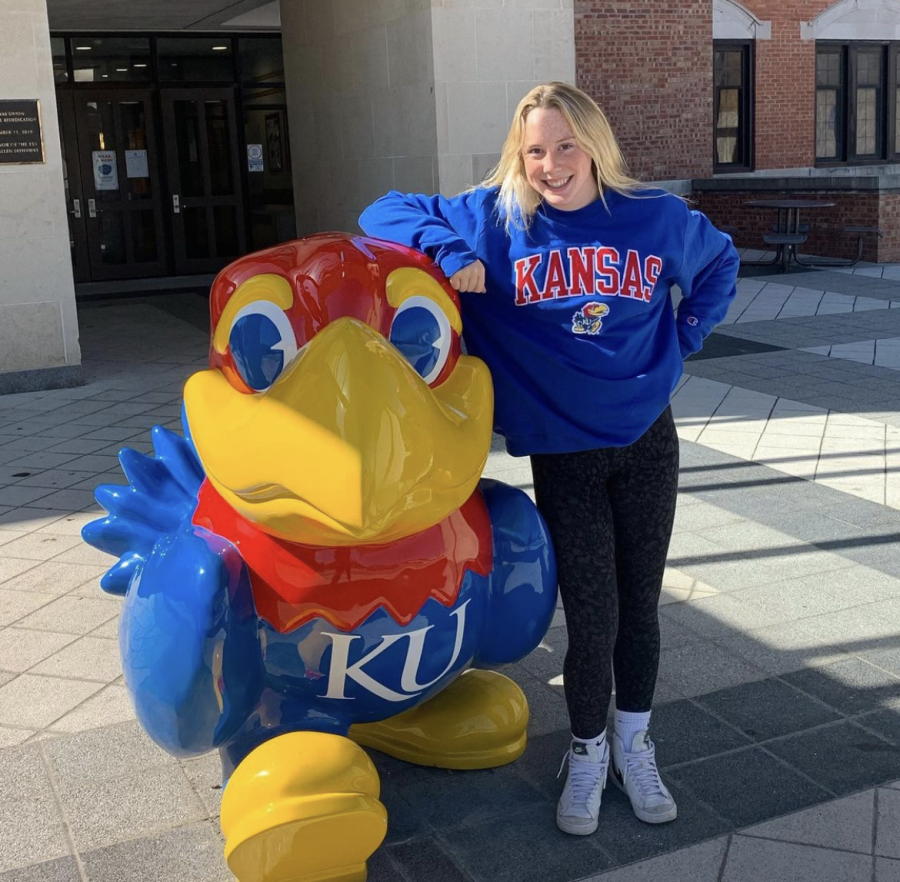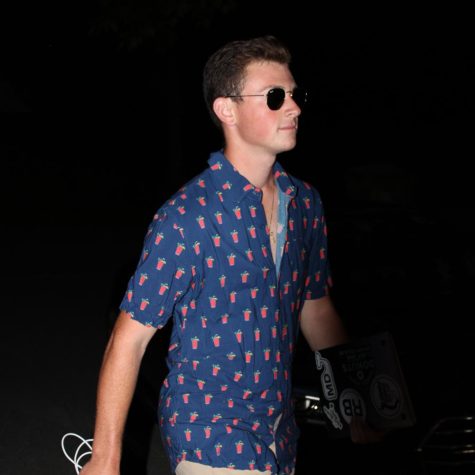Recruiting process proves challenging through pandemic
Photo courtesy of Grace Zifcak.
Although the window to visit schools was shortened for this year’s senior class, many prospective athletes still took advantage of what they had. These visits, whether official or unofficial, are great ways for high school students to determine if a school is a good fit for them.
December 8, 2021
For prospective college athletes at all levels, the recruitment process is a way to find schools that would best fit them academically and help them advance their careers athletically. In the process, prospective athletes normally have calls with coaches, visit schools and their facilities, go to showcases and so much more
However, COVID-19 caused a dead period within the recruitment process that prevented many prospective athletes in the class of 2022 from having the recruitment process that they prepared for. Additionally, the virus took away many critical opportunities for seniors to elevate their game and get recognized
“COVID-19 definitely made my recruiting process harder because it took not only a whole season away from me but also a lot of training opportunities,” Grace Zifcak, a senior committed to dive at the University of Kansas next year, said.
Another factor that made the recruitment process harder for seniors during the pandemic was the extra year of eligibility given to all current college athletes. This limited the amount of scholarship money and overall roster spots available at many schools where college seniors chose to play another year.
“Factors like the 5th year senior rule and extra transfers took up a lot of roster spots at a lot of my top schools and made it harder for me to get recruited,” Matt Roche, a senior committed to play baseball at The College of Wooster next year, said.
Additionally, COVID-19 changed the ways in which prospective athletes could communicate with colleges. In many sports, showcases and other in-person events were canceled or limited, so prospects had to get creative in order to get in touch with schools they were interested in.
“I took and sent a lot of videos showcasing my progress,” Zifcak said. “Even if the videos weren’t perfect it helped the coaches of schools I was looking at see what I was working on and how I was improving.”
This lack of communication also put a heavy importance on being proactive and sending coaches emails. However, when many prospects are doing the same thing, coaches’ emails can get swamped. This led to future college athletes having to be persistent and constantly send emails to stay on top of coaches’ radars and get offers.
“My biggest advice for juniors during their upcoming recruiting process is to not hesitate sending more than one email to a college coach, especially if they are not replying,” Zifcak said. “Coaches are busy people so perseverance can help secure the spot you’re looking for on a college’s roster.”
One of the biggest challenges for any prospective athlete regarding the recruitment process is finding a school that is the right fit both academically and athletically. For seniors during this crazy timespan, this meant keeping up academic stats, such as test scores and grades, while continuing to work out and develop their games in order to show colleges why they fit their mold.
“In order to make sure a school is the best fit for you academically and athletically, I would say definitely keep up with your grades in addition to giving coaches videos of yourself constantly so they can see your growth,” Roche said.
Although the world is changing and will likely be in a state where the current high school juniors will be able to experience at least some of what has been deemed a normal recruitment process, the lessons learned by seniors this year will no doubt carry over to their peers in the grade below.
“As a prospect you have to be patient and persistent during the recruitment process or you won’t be able to succeed,” Roche said. “Whether it’s with your performance, the time it takes for coaches to respond, or anything else it is so important to follow those two values.”



